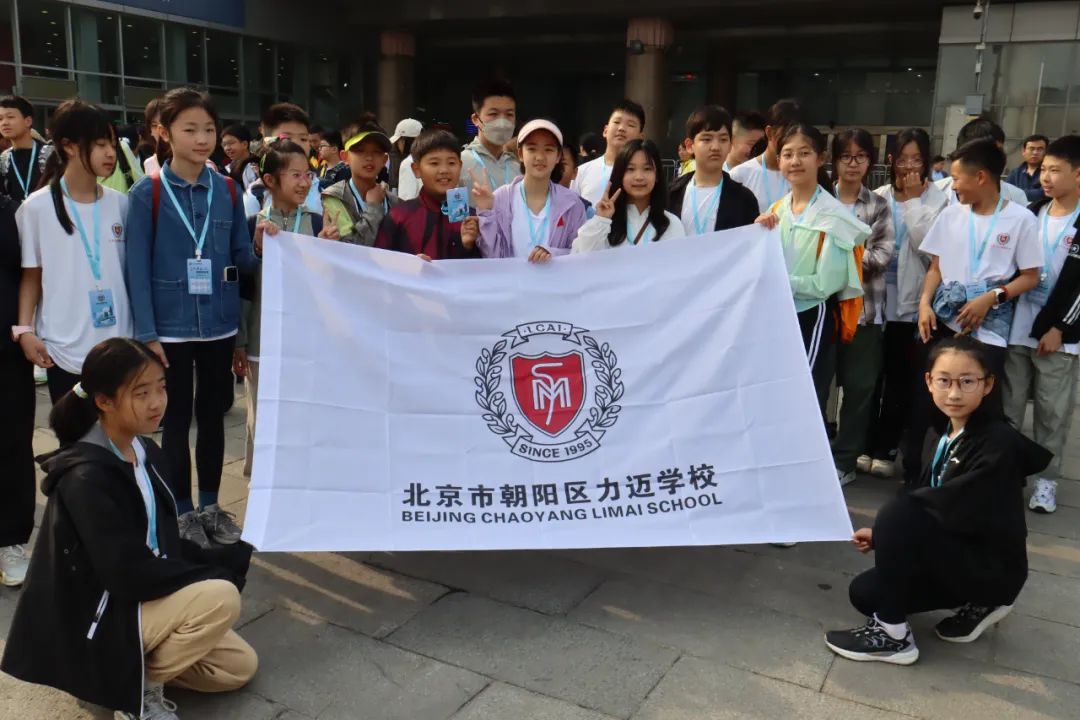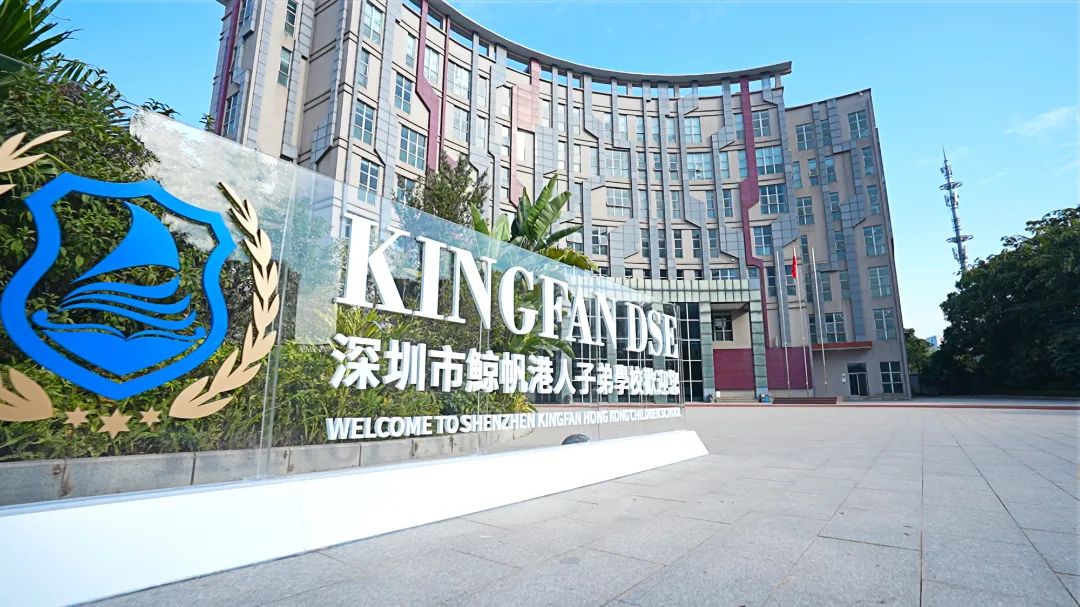2023-09-12发布于安徽
Individuals and Societies Highlights
CISH
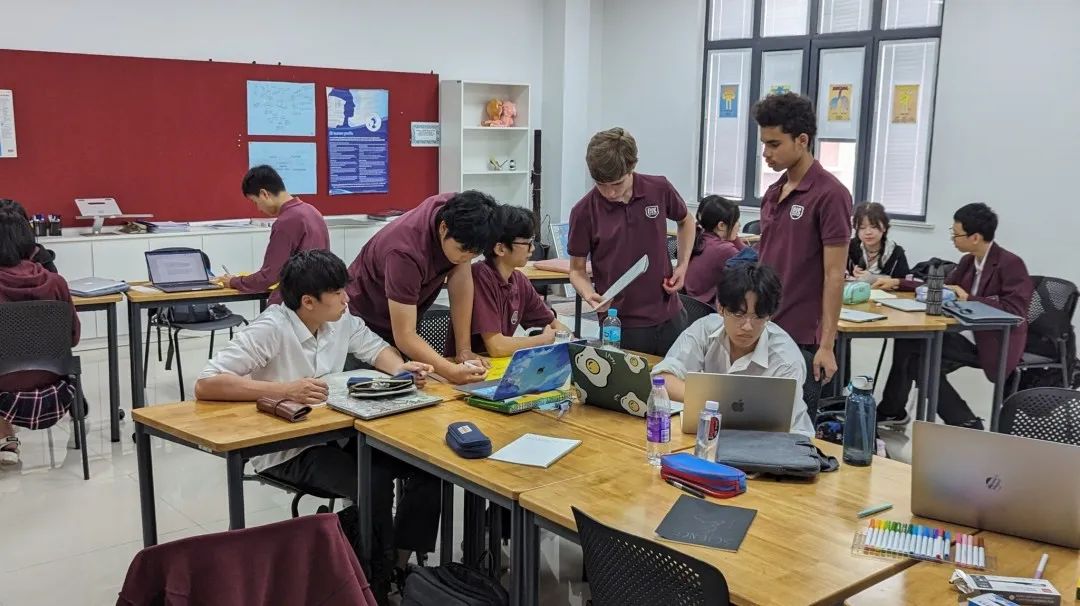
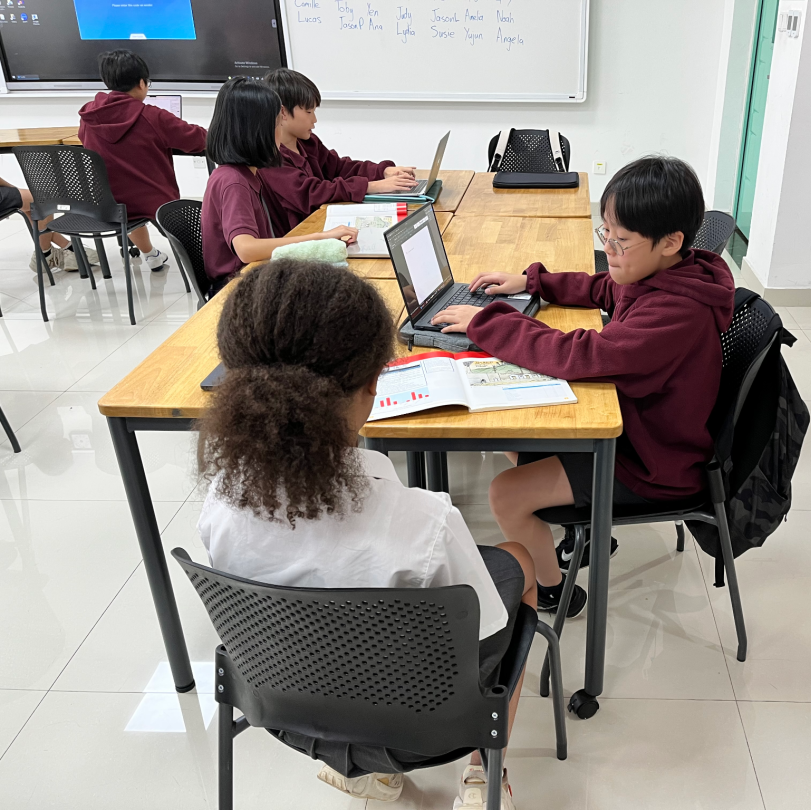
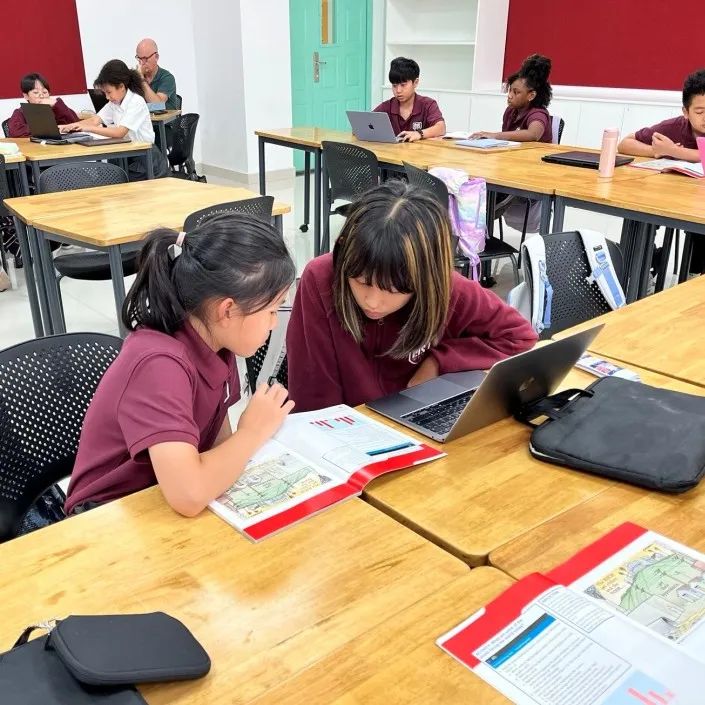
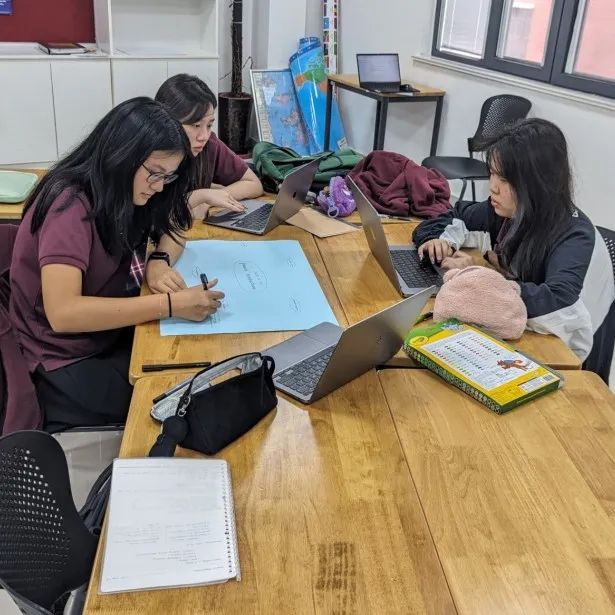
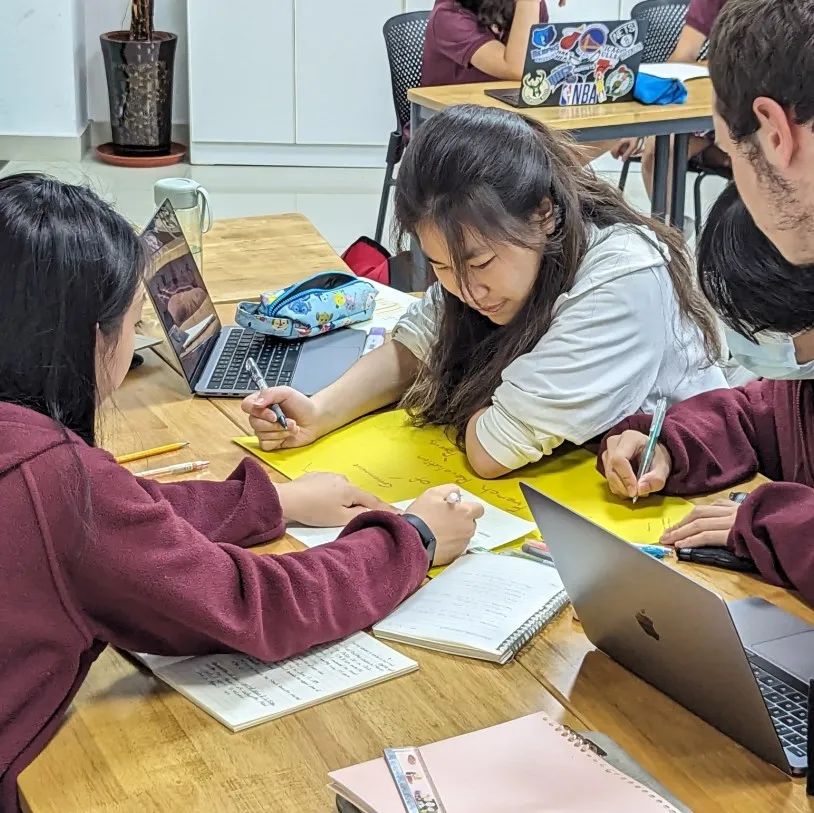

Slide pictures to see more
The Grade 6s continued their engagement in the unit: What does it mean to be a Global Citizen? This week, Grade 6s focused on issues facing the world. Class discussions were held regarding some key issues such as war, economics and the environment. Students were first asked to research examples of current events happening in the world today.
This week the Grade 7 students focused on learning about salary, the different kinds of wages and how this connects to poverty. The students explored the different forms of poverty, what they look like, and how it affects people in society. They practiced their skills at identifying important information in readings.
The grade 8 students have been studying physical patterns in the changing world and have spent this week applying their knowledge and understanding by creating Tectonic Plate Boundary Posters that illustrate how the plates move, the forces they cause, and where the different boundaries exist.
The G9 students have been exploring cultural facts about the Ancient Mesopotamians. They spent time looking at religion, and innovations such as writing, the wheel, the calendar, the our base 60 number system. The students were then introduced to the methods used to solve the language.
G10 students covered the formation of the national assembly, the tennis court oath, and some of the initial violence of the French Revolution. They read the Declaration of the Rights of Man and the Citizen and investigated its meaning and significance. They also created mind maps outlining the many contributing causes of the French Revolution.
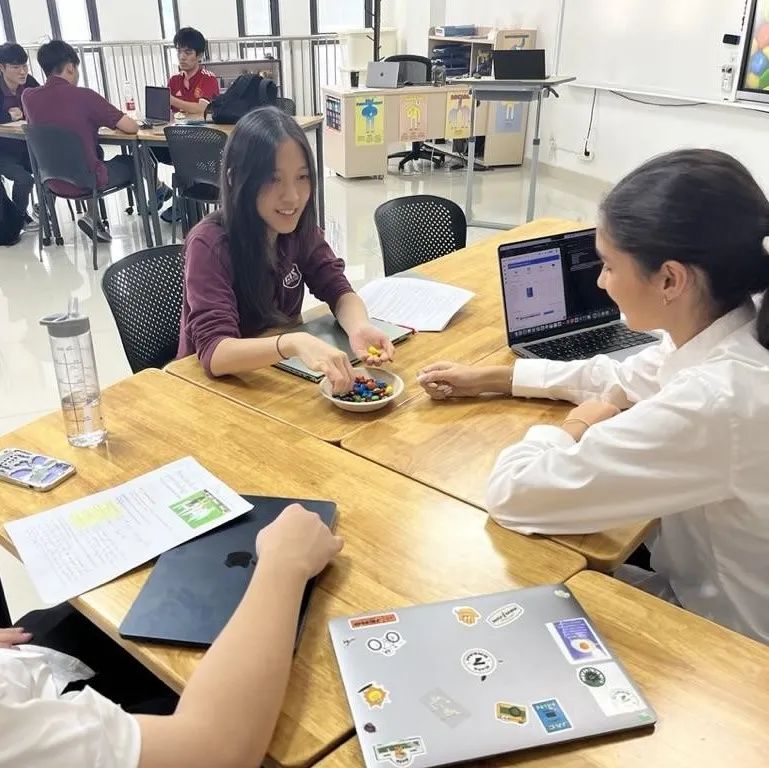
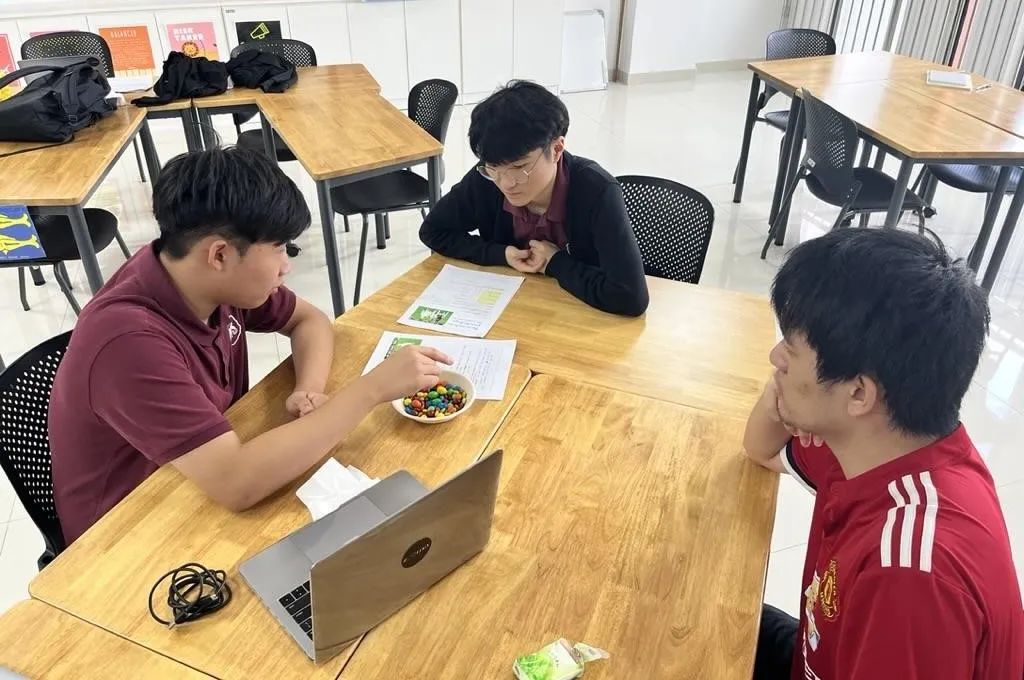

Psychology
This week Grade 11 Psychology students began the week with a review quiz on the introductory content they have been learning. They demonstrated their understanding of research methodology, sampling techniques, and key vocabulary. The students reviewed sampling techniques by using different techniques to create samples from a population of M&M candies.
Grade 12 Psychology students continued their unit on social influence this week. They reviewed conformity and enculturation before diving into the concept of acculturation. They discussed four acculturation strategies and how they can influence behavior. The students also worked together to outline two key studies that they can use on the assessment to support their answers.
Global Politics
Global Politics 11 students covered the UN, its history, its structure, and the many roles it plays in the international system. Students also covered other intergovernmental organizations (IGO’s), and considered their relevance to the concept of global governance.
Global Politics 12 students began a development case study project, through which they are investigating the development progress of a country over time, considering social, economic and environmental factors. They must also examine said country’s progress through two theoretical lenses of their choice (ex:liberalism and realism).
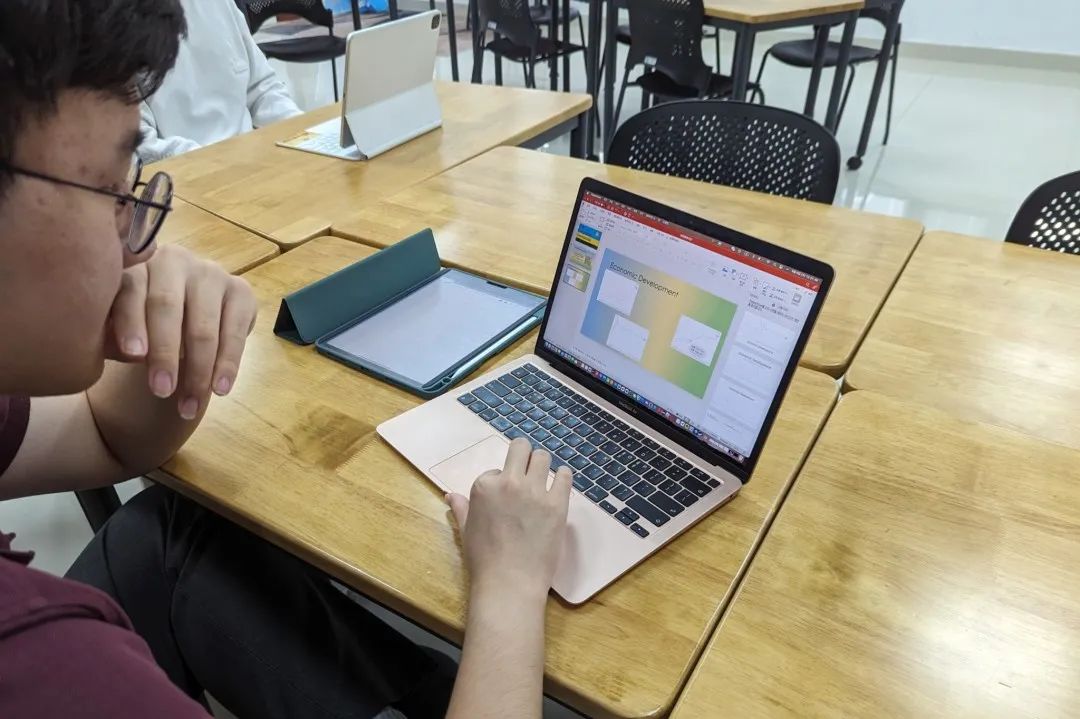
Business Management
Grade 11 students are learning about types of companies (so far - sole traders and private limited companies) and meanwhile developing a deeper understanding of the course requirements to analyse and use the 4 themes of creativity, change, ethics and sustainability in a business context.
Grade 12 students following the summer break before starting on Unit 2 (Human Resource Management) students have been working on their Internal Assignments but also revising the Finance Unit which they studied in depth last term. This week students took a practice paper on Finance (from IB past exams). The test involved creating a balance sheet and analysing a profit and loss account and undertaking sales forecasting and ratio analysis.
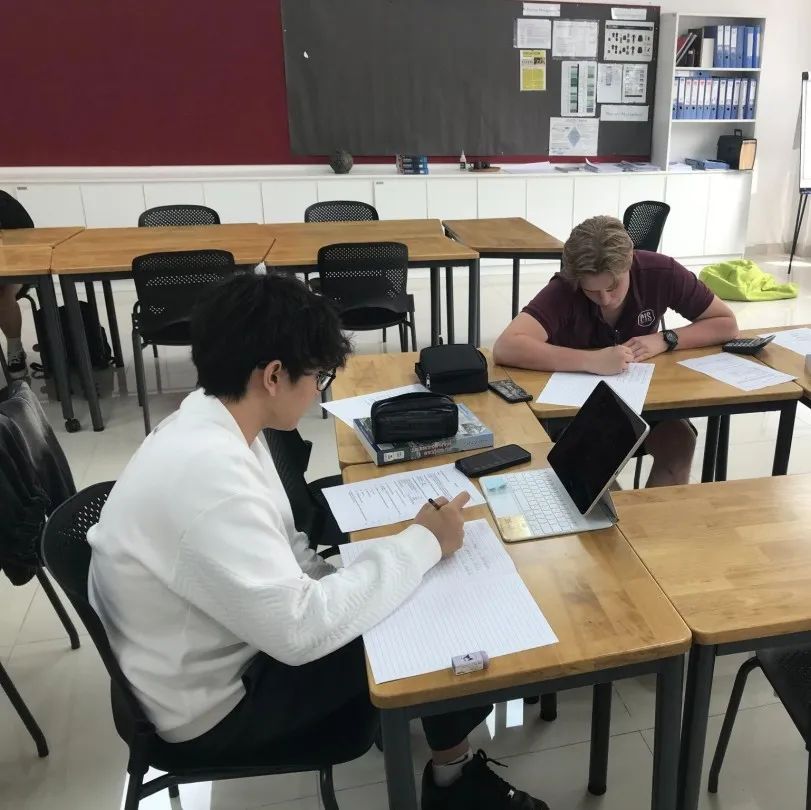
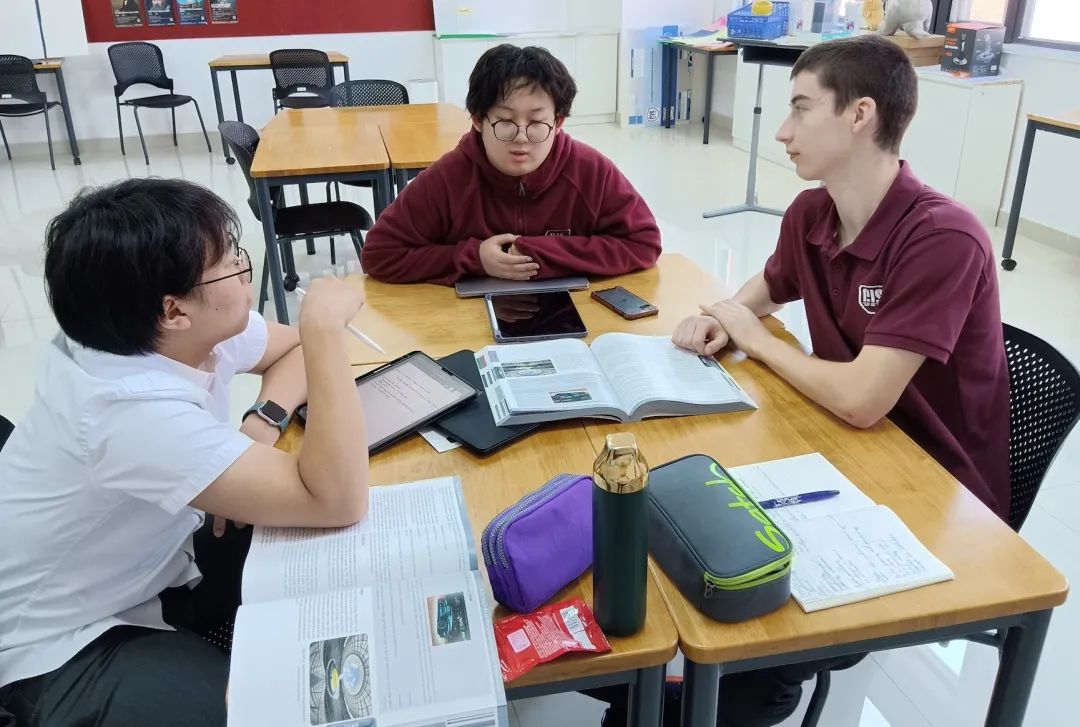
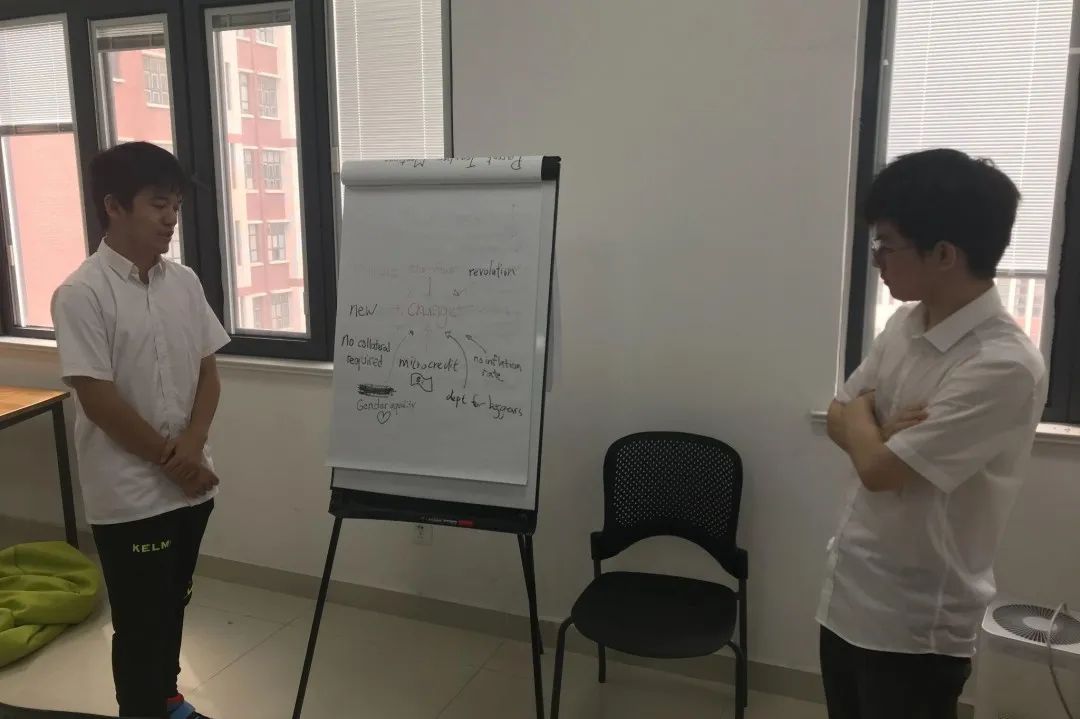
Design Highlights
CISH
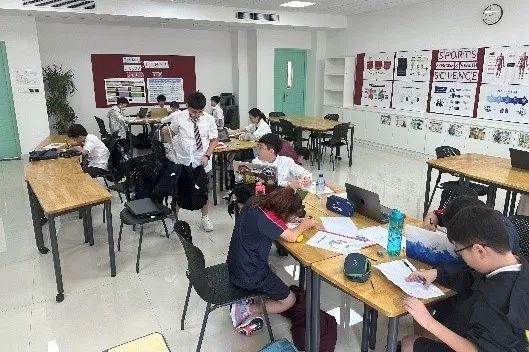
This week, in our Grade 6 Design class, we ventured deeper into the realm of MYP Design, delving into key aspects of the subject matter. We initiated our exploration by building upon the foundation laid in prior lessons, emphasizing the iterative nature of the Design Cycle and its pivotal role in addressing real-world challenges.
In our Grade 7 IB MYP Design class this week, we focused on establishing a safe and productive learning environment. We began by reviewing the design cycle, outlining the four criteria—Inquiring and Analyzing, Developing Ideas, Creating the Solution, Evaluating, and Presenting—to enhance our approach to design challenges.
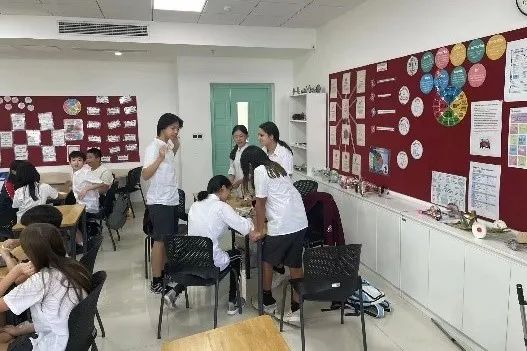
In our Grade 8 IB MYP Design class this week, we continued our quest to cultivate a thriving environment where creativity and safety intersect seamlessly. Building on the strong foundation laid in the previous week, we revisited the design cycle, charting our course for forthcoming projects through the phases of Inquiring and Analyzing, Developing Ideas, Creating the Solution, Evaluating, and Presenting.
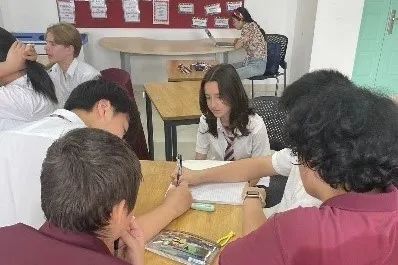
In our Grade 9 IB MYP Design class this week, we continued our journey to build a robust foundation that intertwines creativity and safety. Simultaneously, we continued to reinforce classroom expectations, promoting active engagement, effective communication, and collaborative teamwork as the cornerstones of our shared learning environment.
Grade 10 students did a wonderful job on their strand 3 formative reflections. They demonstrated that they understood the purpose of analyzing existing work in preparation for creating their own product. They also completed their strand 4 summative task where they created a design brief to explain what they would complete for a solution for this unit.

This week in G11, students were tested on the “Computer architecture” sub-div. After the assessment, they moved on to the sub-div “Secondary memory” where they learned about persistent storage and virtual memory. We also examined some Java basics where we worked with topics under variables, primitives, declarations, assignments, casting, arithmetic operations and precedence, Math functions, and programming blocks.
This week the 12s continued to study in a div under System design basics, “Components of a computer system”. They also started working with the sub-div topic Usability under “Human interaction with the system”. Grade 12 students are continuing to work on the Internal Assessments (IA). Class time was put aside for them to work on IAs but they are also expected to do work on their time.
PYP German Highlights
CISH
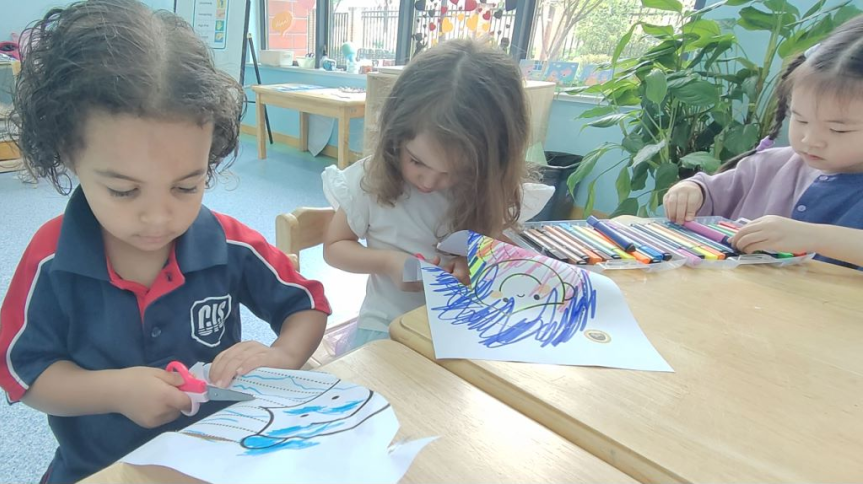
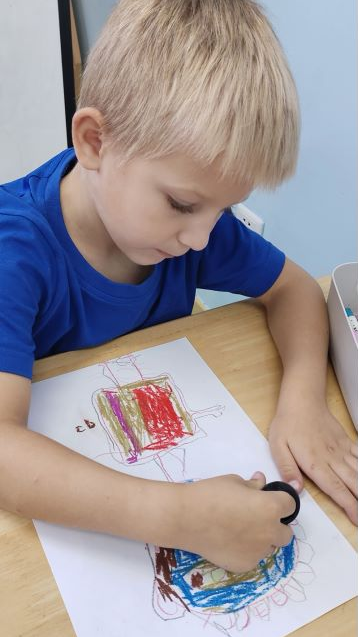
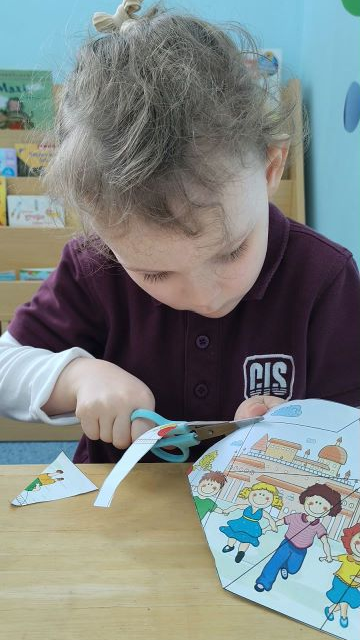
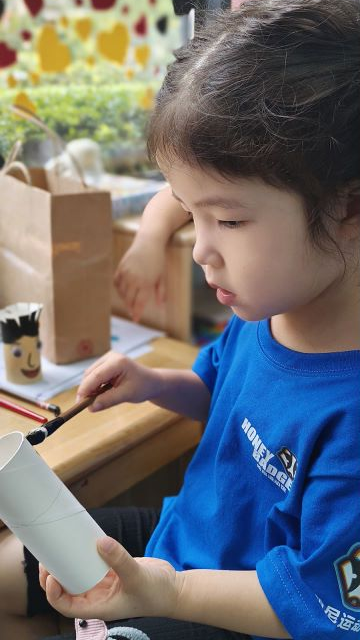
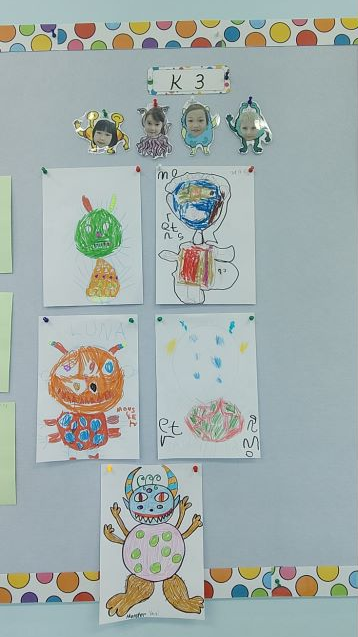
EY German (Yani Wang)
K1: This week, our theme is 'Hair, Skin, Fingers.' The children learned that everyone's hair is different, for example, straight, curly, long, short, etc. Skin color also varies from dark to light. We also introduced the names for our fingers: thumb, index finger, middle finger, ring finger, and little finger.
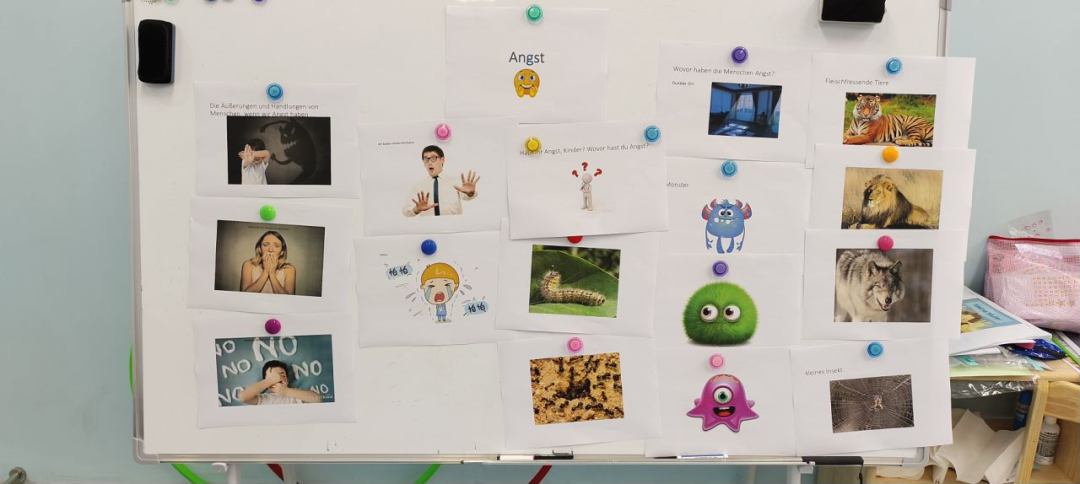
K2: This week, our theme is 'Our Parents.' By listening to a picture book, the children learned that everyone's parents are unique in the world. Additionally, through songs and games, we learned the names for our fingers: thumb, index finger, middle finger, ring finger, and little finger.
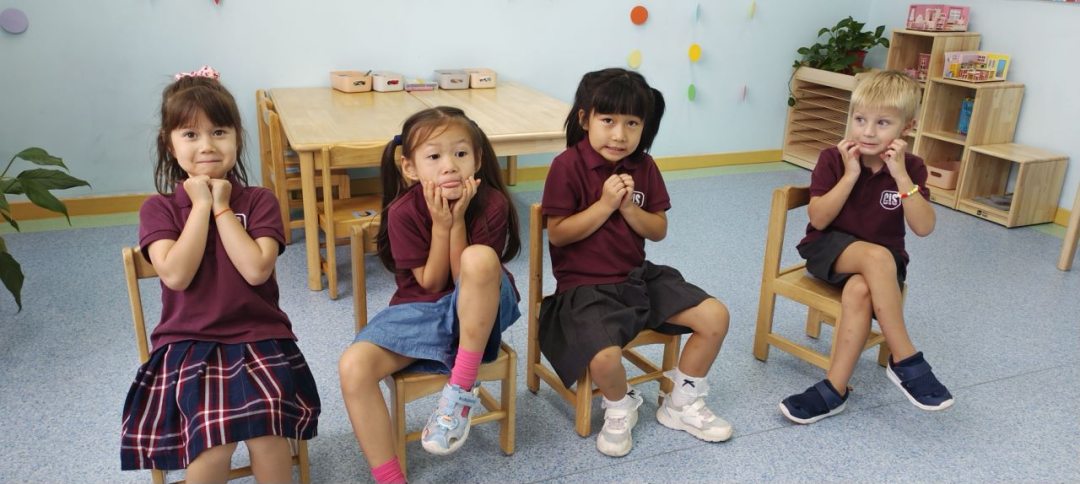
K3: This week, we explored the emotion of 'being afraid.' During our lessons, the students learned about the physical and facial expressions people display when they are afraid, such as trembling, closing their eyes, or covering their mouths. We emphasized that when we feel scared, it's important to talk to our family and friends and seek their help.
PYP German
Class Photos
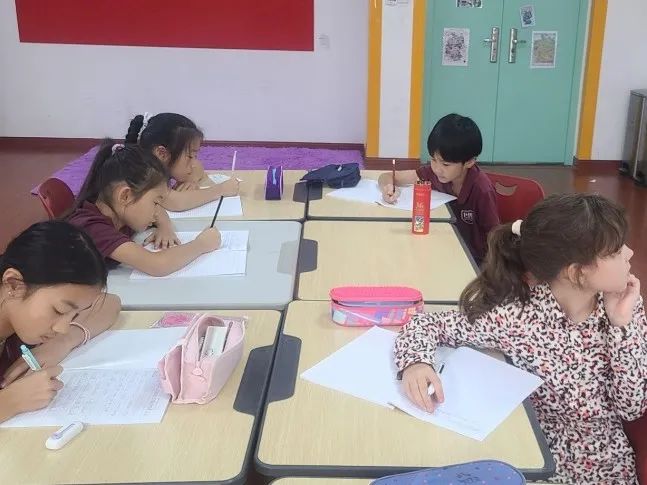
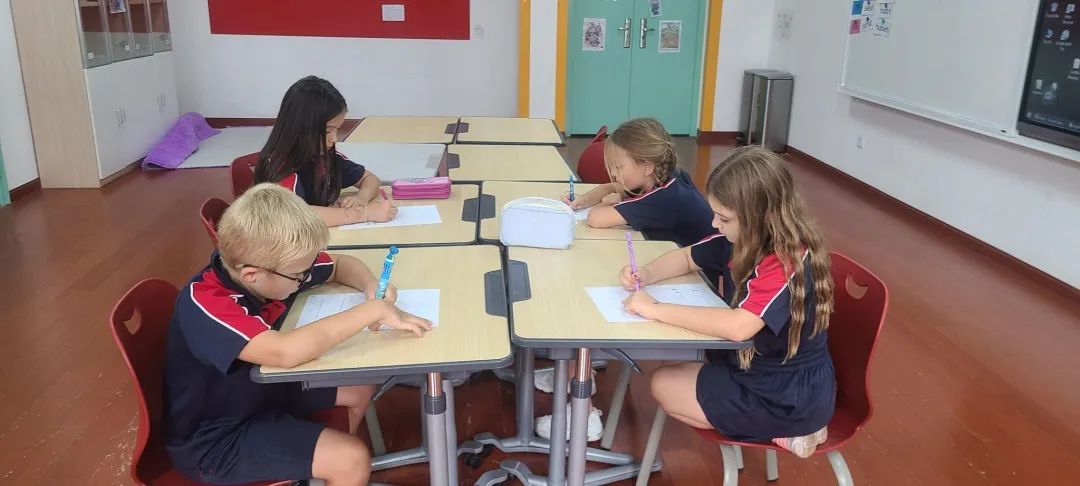
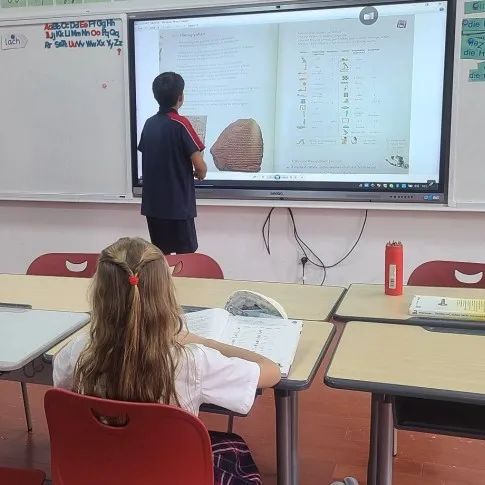
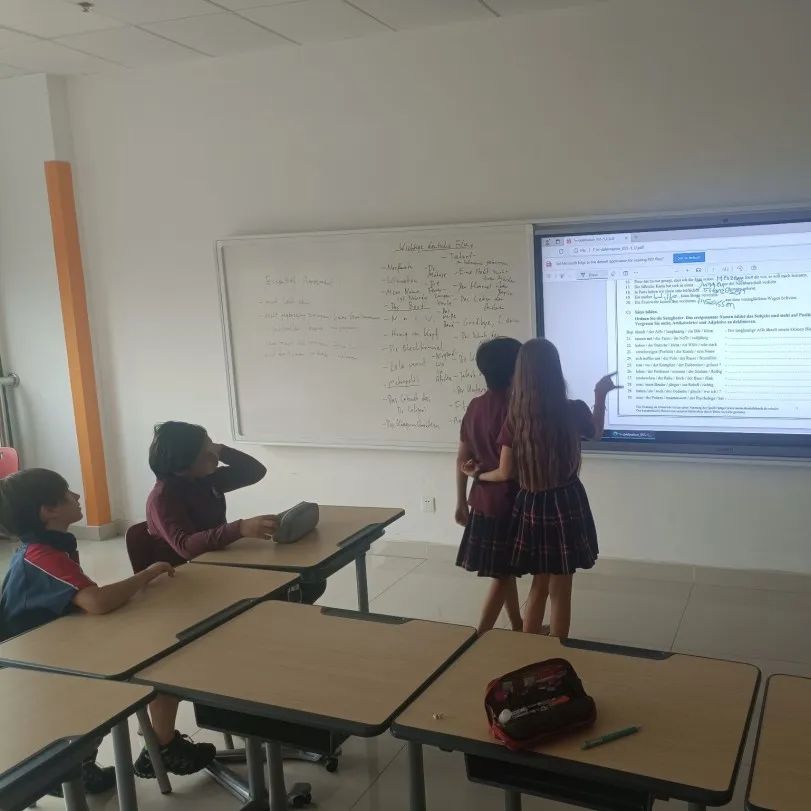
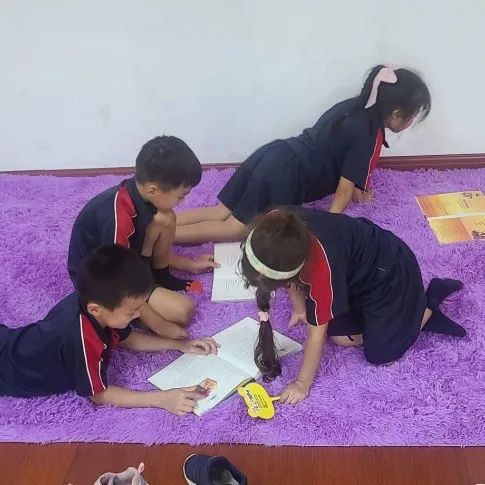
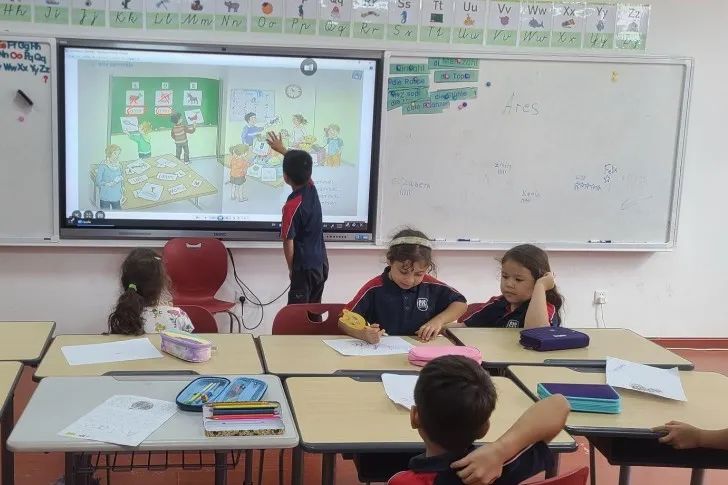
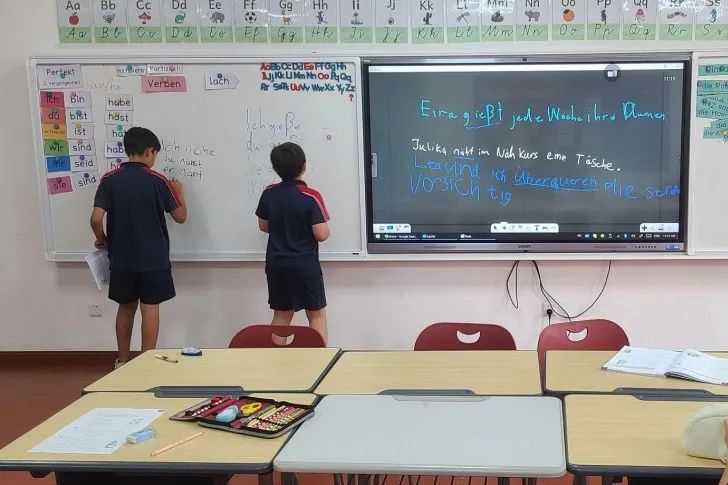
PYP German
(Sascha Wandkowsky & Robert Jordan)
G1: This week, we used the Buchstabenheft in Grundschrift, which is a workbook that helps students learn how to write the letters of the alphabet in a basic script. We focused on learning the letters A/a, L/l, and M/m. We also read texts from the first unit of the Schulabenteurer und ABC-Reisen reading book, about school adventures, and simple texts and word groups about letters.
G2: This week, we practised the Schreibschrift, which is a cursive handwriting style that connects the letters in a word. We practised the letter s, words with s and some sentences with s. Students read texts from the first unit called “Schulabenteurer und ABC-Reisen”, which is about school adventures, and texts about letters.
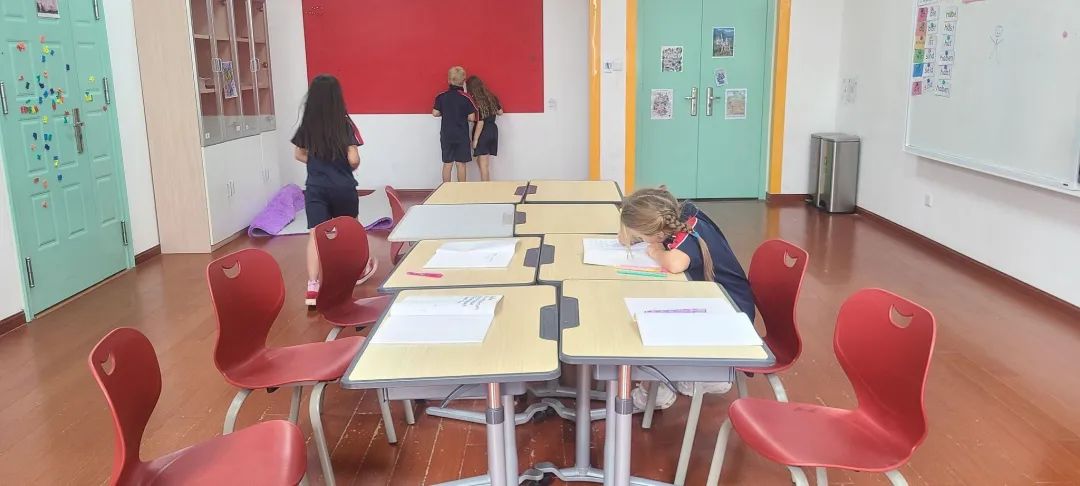
G3: This week, we learned about doppelte Konsonanten, which are double consonants that follow a short vowel or umlaut in German words. We practised how to spell and pronounce words with double consonants, such as Himmel (sky), Koffer (suitcase), and Schifffahrt (shipping). Students read some texts from the first unit of the reading book "Geistesblitze und Lerngewitter", which is about our school, postcards, and a fun timetable.
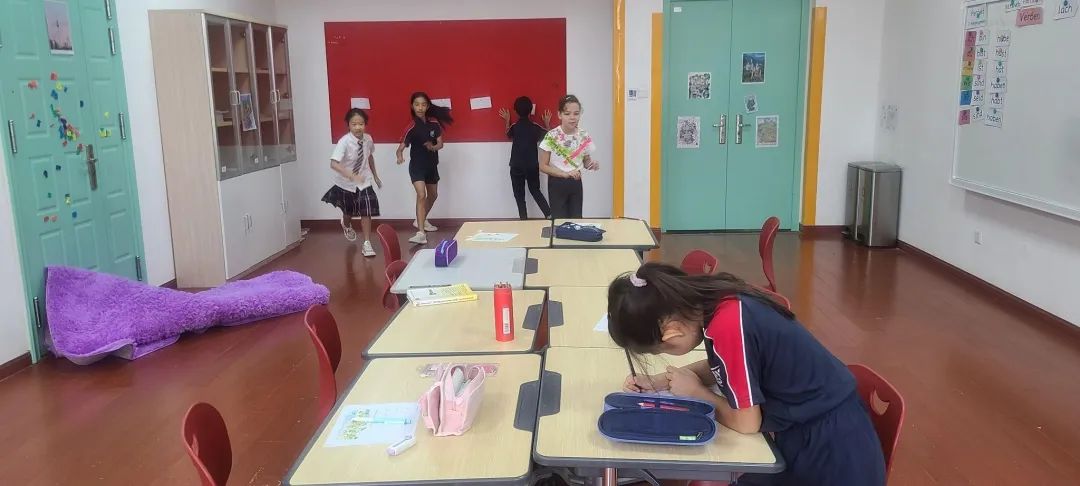
G4: This week, we learned about Zeitformen, which are tenses that show the time of an action or a state. We explored the general idea - Vergangenheit, Gegenwart and Zukunft as well as their more advanced names: Past, present and future. Students read texts from the first unit of the reading book "Geistesblitze und Lerngewitter", which is about brilliant ideas and storms.
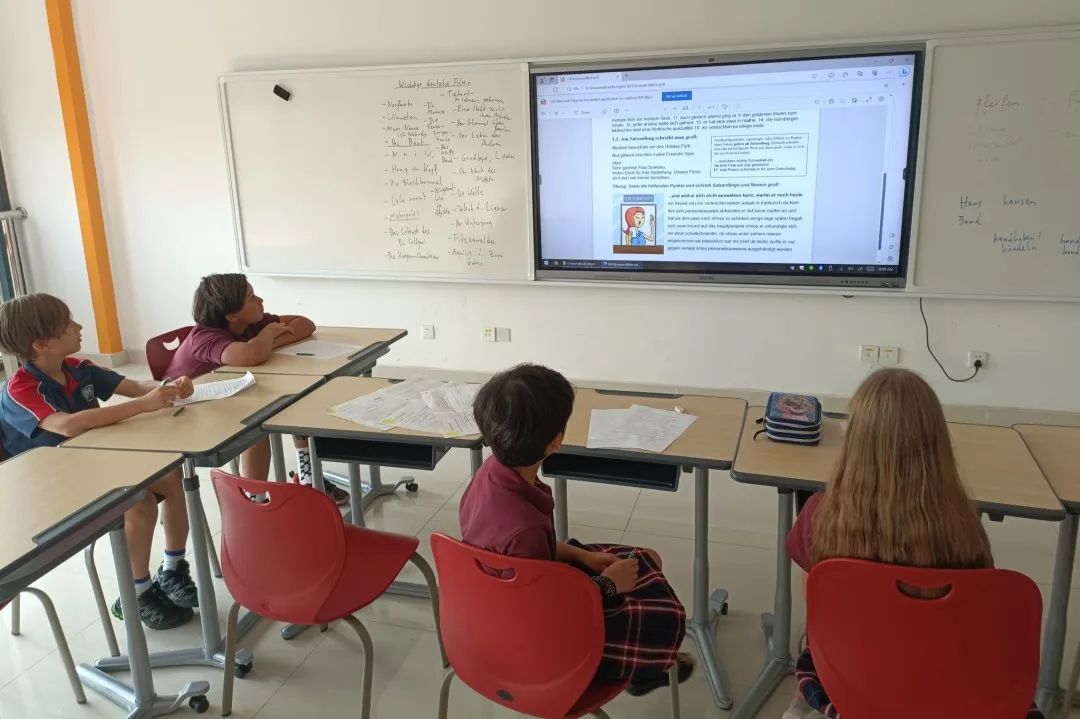
G5: This week, students worked on a number of activities including: Konjunktiv II (including polite ways of saying things), spelling, when to use capital letters, cases, reading (pronunciation) and understanding texts, rules of communication in discussions, building words (nouns, verbs, adjectives and compound words), preposition of place (where is …?) and tempora.

声明:本文内容为国际教育号作者发布,不代表国际教育网的观点和立场,本平台仅提供信息存储服务。
全国500所国际学校大全 / 3分钟匹配5-8所 / 1年名校升学备考托管服务




